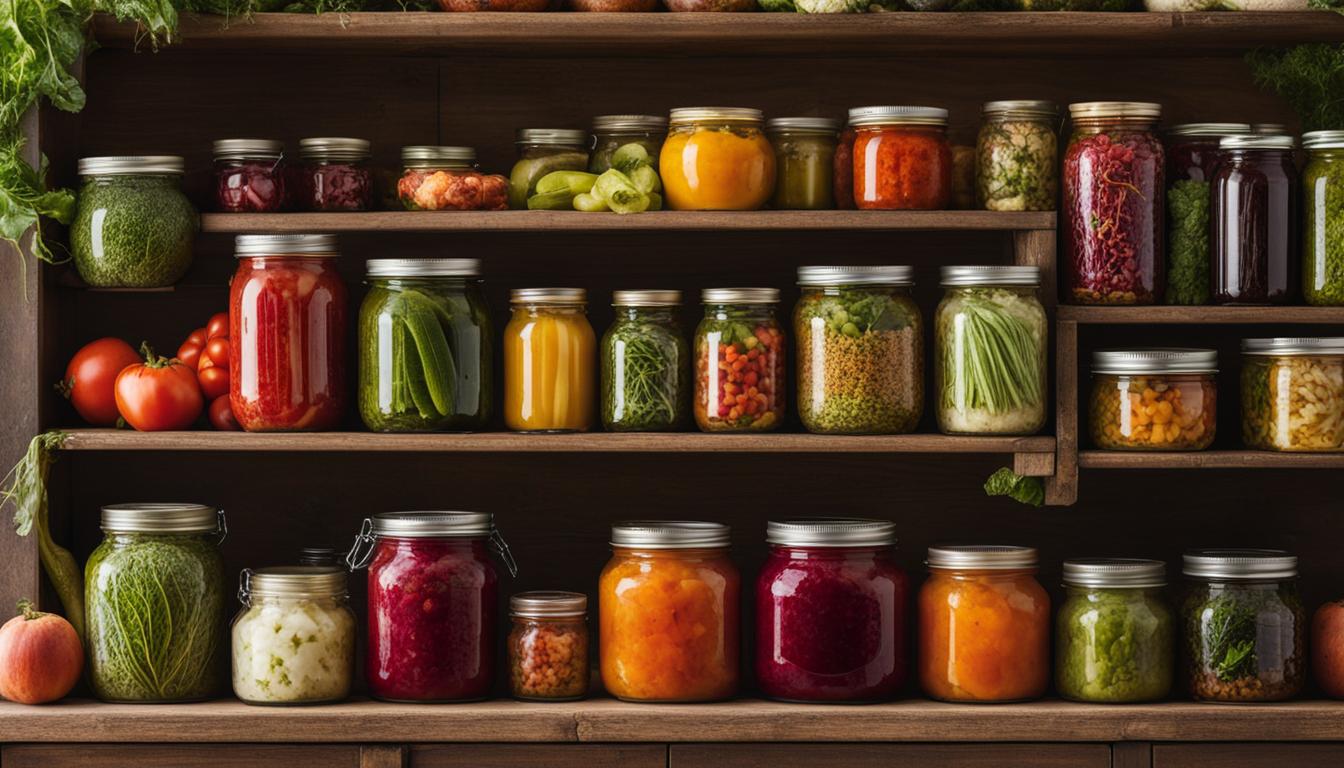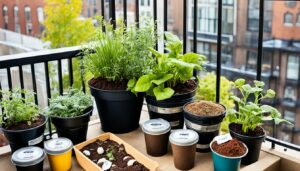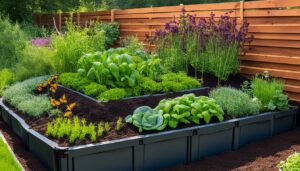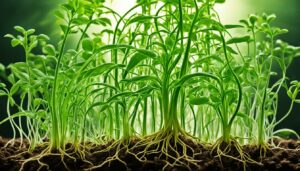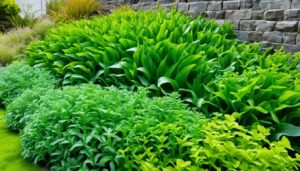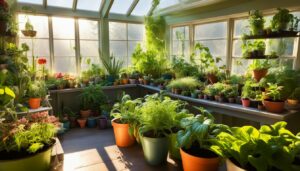Welcome to the world of fermentation gardening, a burgeoning practice where the cultivation of plants is about more than just producing fresh produce—it’s about nurturing a living, breathing ecosystem right in your backyard. Imagine your garden teeming with life above and below the soil, where probiotic garden plants thrive alongside a community of beneficial bacteria integral to their health and yours. Here, cultivating fermentation crops goes hand in hand with sustainability—each plant contributing to a cycle of life that enriches the very ground it grows in.
Fermenting vegetables for the garden is an ancient art rejuvenated by modern gardeners who appreciate the intrinsic connection between the health of their crops and the vitality of the soil. By harnessing fermentation’s power, you’re not just attempting to grow food; you’re committing to a holistic approach that nurtures and sustains. So, step outside the conventional gardening box and let’s explore how the introduction of probiotics can invigorate your gardening experience.
Key Takeaways
- Understanding how fermentation gardening can revolutionize your gardening approach.
- Appreciating the symbiotic role of beneficial bacteria in gardening for plant and soil health.
- Discovering the essentials of growing and cultivating fermentation crops for a resilient garden ecosystem.
- Learning to foster the growth of probiotic garden plants for sustainable cultivation practices.
- Exploring techniques for fermenting vegetables for the garden to enhance nutrient uptake and soil vitality.
The Essence of Fermentation Gardening: Benefits and Basics
Fermentation gardening is grounded in the wisdom of the ages, harnessing time-tested fermenting techniques for garden growth that naturally enhance the nutrient profile and microbial diversity in garden soil. Central to this concept is the creation of Fermented Plant Extracts (FPE), which stands as the pillar of organic garden supplementation, providing a variety of holistic benefits essential for enhancing plant health through fermentation.
Understanding Fermented Plant Extracts (FPE)
Familiarizing oneself with FPE begins with appreciating its simple, yet powerful composition. Plant matter, activated by lactic acid bacteria and a carbohydrate source such as molasses, undergoes a transformative fermentation process. The result? A rich concoction brimming with nutrients, enzymes, and beneficial microorganisms. By applying this liquid directly to the soil or as a foliar spray, gardeners can provide their plants with a direct infusion of vitality, optimizing the conditions for vigorous growth and bountiful yields. The breakdown of complex compounds into simpler, more absorbable forms is the secret behind the efficacy of fermented plant fertilizers.
The Versatility and Advantages of Homemade Plant Nutrition
The advantages of homemade FPE are multifaceted, offering an organic and cost-effective alternative to commercial fertilizers. Not only does it improve plant nutrient uptake, but it also champions environmental stewardship by reducing the carbon footprint associated with the production and transportation of synthetic fertilizers. In essence, these nutrient-rich fertilizers are a testament to the ingenuity and resourcefulness of gardeners dedicated to practicing sustainable, organic farming and garden care.
Contributing to Soil Health: Microbial Diversity and Fertility
As vital as the flora above ground, the unseen microbial life within the soil forms the cornerstone of a thriving garden. Introducing FPE enriches this underground realm, bolstering the soil’s fertility and structure. By cultivating a rich tapestry of microbial life, gardeners can expect not only healthier plants but also improved resistance to pests and diseases. The benefits of incorporating FPE into the garden are manifold, reinforcing the notion that healthy soil translates to a healthy ecosystem.
| Benefit | Homemade FPE | Store-bought Fertilizer |
|---|---|---|
| Origin | Organic material from garden or kitchen waste | Often synthetic, manufactured products |
| Nutrient Release | Slow and sustained, promoting steady growth | Fast, which can sometimes overwhelm or burn plants |
| Environmental Impact | Low carbon footprint, supports recycling of biomass | Higher carbon footprint due to production and transport |
| Soil Health | Increases microbial diversity, improving soil structure | May deplete soil microbes and impact long-term fertility |
| Cost | Minimal, primarily labor for preparation | Variable, can be significant over time |
In conclusion, fermentation gardening is a nod to the past and a step towards the future of sustainable agriculture. By leveraging the power of fermented plant fertilizers, employing proven fermenting techniques for garden growth, and cultivating an environment teeming with microbial diversity in garden soil, we actively participate in the grand cycle of life that fuels our planet. In doing so, we not only nurture our gardens but also honor the delicate balance of nature that sustains us all.
Fermentation Gardening, Probiotic Garden Plants, Cultivating Fermentation Crops
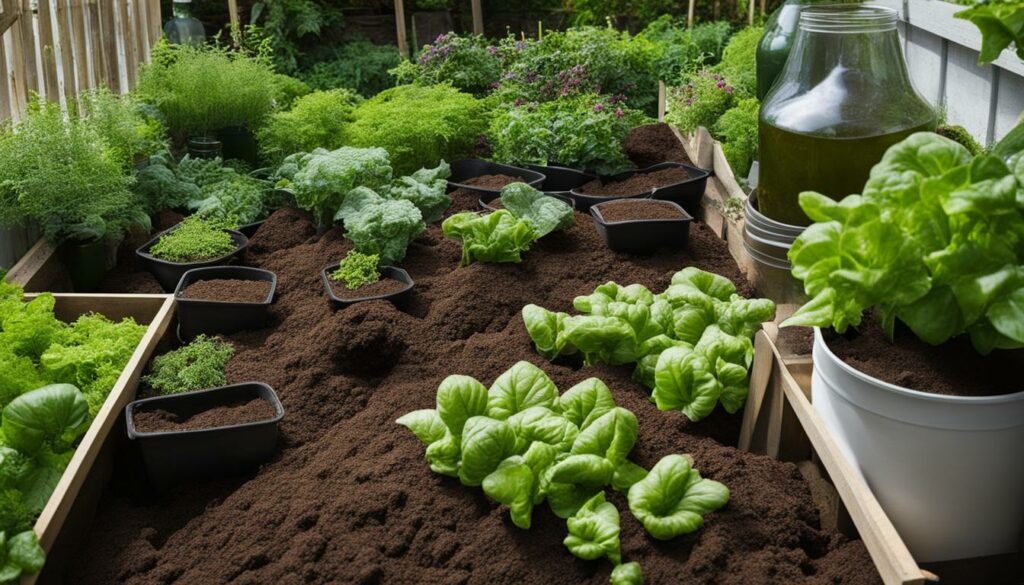
The journey to enhancing plant health through fermentation is a transformative approach to gardening that leverages the power of living microorganisms. Gardeners are turning their green spaces into thriving ecosystems, full of beneficial bacteria in gardening. This biological boom is largely due to the adoption of organic fermentation practices for plants. By nurturing microbial diversity in garden soil, these gardeners are not only improving plant resilience but also paving the way for more sustainable gardening methods that work in harmony with nature.
To walk this green path, let’s explore the central components and advantages to be gained from cultivating fermentation crops:
- **Youthful Vitality**: Incorporating young plants, rich in chlorophyll and fiber, facilitate high-quality fermented plant extracts, which in turn feed the soil with essential nutrients.
- **Microbial Richness**: The explosive growth of microbial populations in the soil enhances plant defenses and promotes vigorous growth, enabling gardeners to raise healthier crops.
- **Organic Integrity**: By selecting plants that are free from disease and avoiding chemical contamination, you ensure your garden remains a bastion of organic practices.
- **Local Adaptation**: Utilizing plants that are acclimated to local environmental conditions ensures that your fermentation practices yield the best possible outcomes for your garden.
This commitment to organic fermentation practices for plants not only sets the stage for a verdant garden but also supports the environment as a whole. From nourishing the life beneath our feet to reaping the harvest above, fermentation gardening is an emblem of holistic, earth-friendly cultivation.
Organic Fermentation Practices: Nurturing Your Plants Naturally
Delving into the essence of organic fermentation practices for plants, we uncover a practice steeped not only in tradition but also in efficacy. Comprehending and applying fermenting techniques for garden growth plays a pivotal role in developing a thriving garden ecosystem. This method is intrinsically linked to cultivating fermentation crops and fostering probiotic garden plants that contribute to a resilient and fruitful garden.
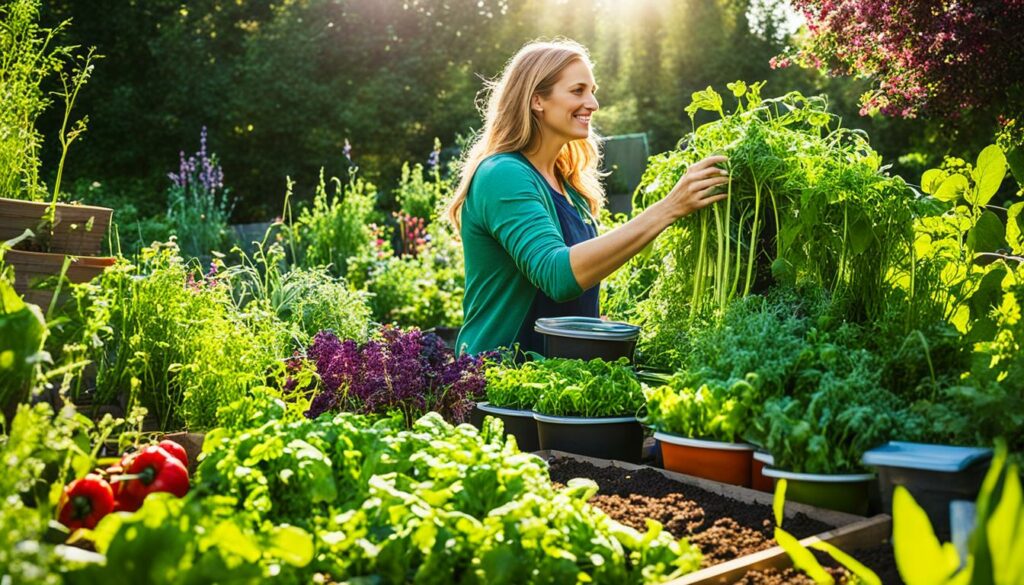
One fundamental technique in this organic arsenal is composting. Composting is an art that marries waste and patience, producing black gold that feeds the plants and the myriad organisms dwelling within the soil. Those looking to embrace these organic principles must also come to terms with the microscopic world, teeming with life, that governs soil health. Embracing the presence of natural effective microorganisms can pivot a garden from merely surviving to robustly thriving.
Organic fermentation is the heart and soul of a garden that teems with life, both seen and unseen, creating a confluence of vigor and vitality.
It is not only about what we can see above ground but also about acknowledging and enhancing what lives below. The synthesis of beneficial microbes through probiotic gardening methods extends beyond just enhancing plant growth; it creates a bulwark against pests and diseases, cutting down the need for chemical intervention. These practices go hand in hand with veganic gardening efforts, which forego the use of animal by-products, to cement a truly organic foundation for healthy crops.
- Composting with organic kitchen scraps and plant residues
- Employing Bokashi or other anaerobic fermenting techniques to accelerate decomposition
- Incorporating Effective Microorganisms (EM) to reinforce soil vitality
- Creating Fermented Plant Extracts (FPE) from robust, locally-sourced vegetation
The shift towards organic fermentation practices aligns a gardener with the rhythms of the natural world, utilizing what it provides to facilitate garden vigor. By embracing this approach, we not only provide ample nourishment for our plants but also advocate a sustainable, ecological balance within our gardens.
Conclusion
In reflecting on the journey through the verdant world of fermentation gardening, we recognize that the practices we adopt within our home landscapes can have a far-reaching impact. There’s no doubt that probiotic gardening practices are not merely a method, but a philosophy, one that intertwines the gardener with the cyclical nature of life. As we work hand-in-hand with microbial allies, we lay the groundwork for sustainable cultivation, nurturing the earth with an attentiveness that reveres nature’s own strategies for growth and resilience.
Embracing Probiotic Gardening for Sustainable Cultivation
To embrace probiotic gardening is to step into the future while holding the rich soil of history in our hands. This approach to cultivation is an affirmation of our commitment to the environment, allowing gardeners to create bountiful, thriving gardens without the use of harsh chemicals. It is both a preservation and innovation, promising sustainable cultivation that maintains the delicate balance of ecosystems. Through fostering beneficial bacteria and crafting a garden that is both a sanctuary and a source of sustenance, we acknowledge the power of the small yet mighty microbe in achieving new heights of horticultural health.
The Future of Gardening: Integrating Probiotics into Horticulture
As we peer into the future of gardening, we see a world where integrating probiotics into horticulture is not the exception but the norm. By reinvigorating the soil with the life-giving force of probiotics, every gardener can contribute to a grander vision of plant cultivation, which promotes health, vitality, and longevity. Such evolution in gardening is perhaps the natural progression for those who hold dear the values of stewardship, care, and respect for the natural world. Together, through fermentation gardening, we cultivate not just plants, but a legacy of harmony between the earth and those who tend it.

